Wayne Schwass says ‘time has come’ for AFL to act on mental health
Footy great Wayne Schwass has called on AFL bodies to forget ‘agendas and outcomes’ and focus on providing better mental health support for footballers, in wake of North Melbourne star Majak Daw’s Bolte Bridge incident.
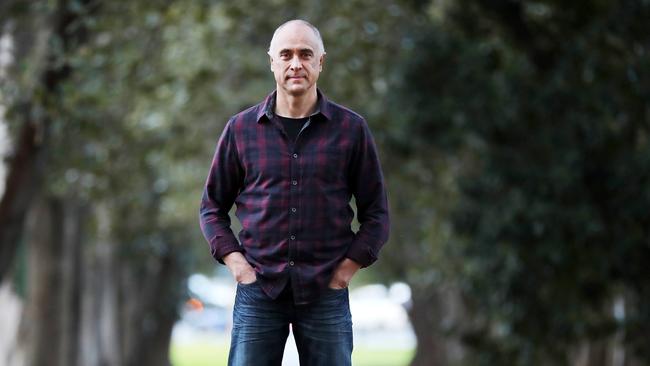
VIC News
Don't miss out on the headlines from VIC News. Followed categories will be added to My News.
FOOTY great Wayne Schwass has called for better mental health support for AFL stars, in the wake of North Melbourne star Majak Daw’s Bolte Bridge incident.
The North Melbourne premiership ace said footy stars were under more pressure than ever and needed better skills to deal with issues outside the game.
“They’re under enormous pressure,’’ he said.
“AFL is a really stressful environment because of the nature of the sport so we equip them and educate them to be as good a player as they can be and the tools to help them achieve that.
“But what I see is a lack of investment and education and commitment to helping athletes develop the necessary emotional tools that enable them to deal with and manage stressful situations that may arise in their life.’’
MAJAK DAW IN HOSPITAL AFTER SERIOUS BRIDGE INCIDENT
Thoughts, prayers and best wishes go out to @majakdaw ðŸ™ðŸ¼
— Wayne Schwass (@WayneSchwass) December 17, 2018
Sending you unconditional support, love and respect during this difficult time brother💙 #takecare
Most recent AFL player survey listed mental health as the NUMBER 1 concern/ issue across the entire playing body!
— Wayne Schwass (@WayneSchwass) December 18, 2018
Not money, not opportunities, not retirement, MENTAL HEALTH!
It’s time we listened to their collective voices & prioritised their mental health!
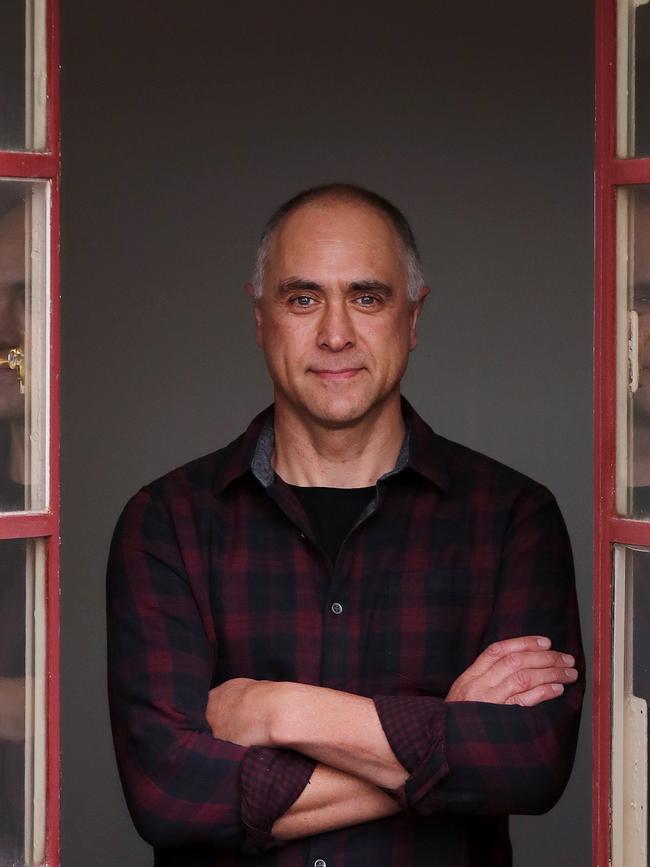
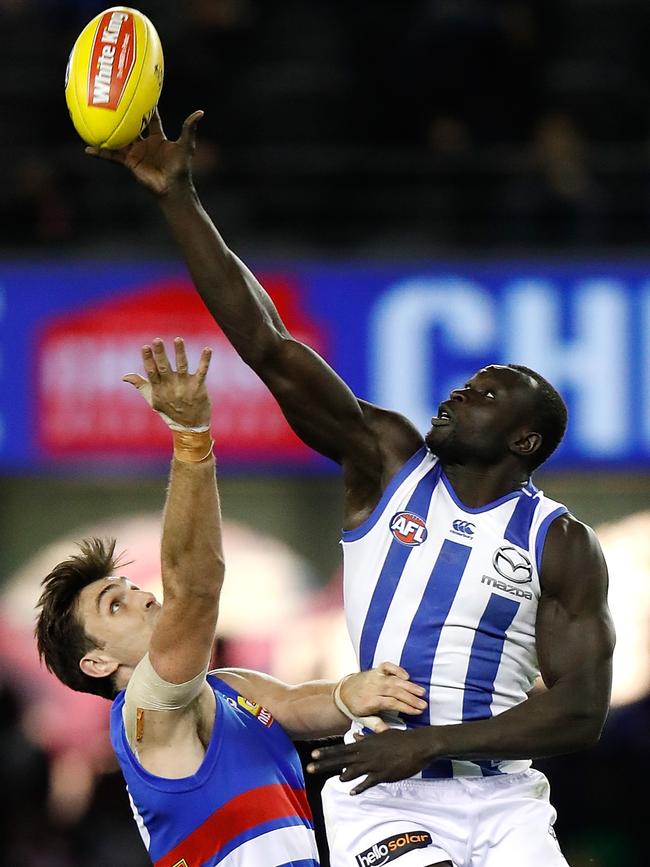
Schwass said the footy field was just one area of life that elite athletes experienced stress, citing relationship problems, financial woes, alcohol, drugs and gambling as key mental health triggers.
“There are a whole host other different issues that players can confront at some stage in their lives so we need to help educate our players emotionally and support them to develop the skills to deal with some very stressful situations in their lives,’’ he said.
He said the AFL needed to invest better resources to the problem but an industry wide approach was necessary.
“I think the time has come now where the AFL, Players Association, Coaches Association, clubs and players come together collaboratively,’’ he said.
“It shouldn’t be about agendas and outcomes and who gets credited for what.
“It has to be about the wellbeing, both mentally and emotionally of our players, of our coaches, of our staff.
“And then more broadly, the community.’’
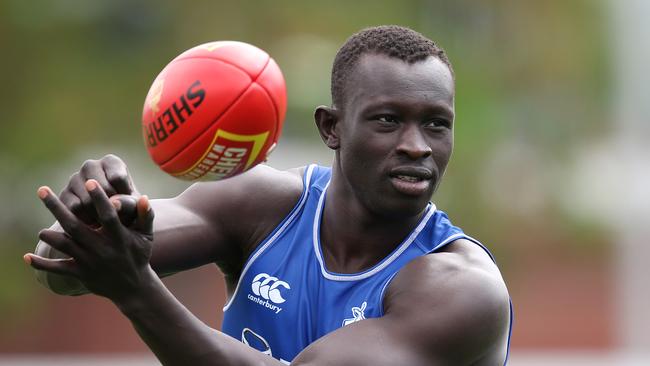
Schwass, who has become a mental health advocate after detailing his own battles with depression, said community perceptions to the problem could be better shaped if the AFL community better tackled the issue.
“That is the broader opportunity but first and foremost we need to get our house in order and we need to begin to tackle this properly,’’ he said.
“I’m very confident that for every Alex Fasolo, Tom Boyd, Travis Cloke who comes out and does acknowledge that they are dealing with mental health conditions, there are a lot more that haven’t found the courage.
“They feel fear, they’re concerned about losing opportunities, they are worrying about being judged, they are concerned about losing respect.
“And I say that because they are the things that I carried with me for a long period of time and we need to change the environment.’’
He said the “common goal has to be developing a framework and set of guidelines’’ that empower people to “properly address and manage mental health’’.
“I mean creating a culture and environment that encourages people to prioritise their mental health and emotional well being without any fear, any judgment or any shame,’’ he said.
Former Blue Jake Edwards, who in 2009 tried to take his own life after battling demons following the end of his tenure at Carlton, said players were not immune to mental health struggles and he urged the community to be more understanding
Now an advocate for mental health in sport through Outside The Locker Room, Edwards revealed this morning that a club had cancelled a talk with its players because it didn’t want them exposed to suicide.
An AFL club canceled my talk to their players last week because they didn’t want their players exposed to suicide. And yet here we are today 😡 What will it take for the industry to WAKE UP!!! James Hird, Shane Yarran and now Majak Daw... who’s next AFL?
— Jake Edwards (@JakeEdwardsSays) 17 December 2018
“When I woke up this morning and heard the terrible news about Majak ... you can’t help but feel for the young man, especially his close family and friends,” Edwards, who played five games for the Blues in 2008, said.
“Having been in that position myself, it brings up a lot of old, you know, emotions in myself also.
Edwards, said people need to realise that, behind the glitz and glamour, AFL players were “just human”.
“Every single AFL player going through a difficult time, we hear it (people saying they shouldn’t have a problem) and what happens in our minds is that we start second guessing the way we’re feeling,” Edwards said on 3AW this afternoon.
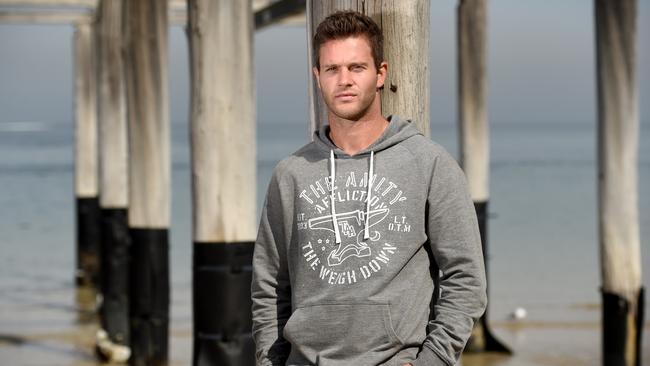
“And when we hear people have opinions like that we assume that they’re right. That they’re exactly right: ‘I do have the world at my feet, I do have money, I do have a beautiful looking girlfriend, I have opportunities unlike most of the community. Why am I feeling this way? I shouldn’t be feeling this way’
“So it compiles to the: ‘Oh I’ve just got to get on with it, you’ve got to harden up, this is just part of becoming a footballer’.”
Edwards said players were often left frustrated at the community’s attitude toward them.
“It’s ignorance, it’s naivety from people in the community who look at our stars and our athletes and can’t recognise the fact that they’re just human, they’re just people and we put them on pedestals that puts them in a frame that they must be immune to these types of experiences,” he said.
“Because the reality is that, yes, as AFL clubs and AFL players, we have great resources around us.
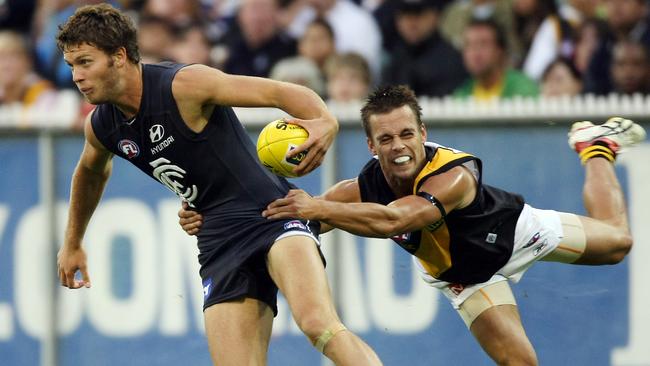
“We have resources in place to be able to support the people that are going through these challenging times, but the problem is, like the society problem is, is reaching out and connecting in with these people – that’s the biggest problem that we’re having right now.
“We see people like (Western Bulldog) Tom Boyd, (Former Pie, now Blue Alex) Fasolo, and every year there’s more people coming out.
“And it’s going to become a bigger problem, and I’m just glad right now that we’re having a conversation about a young man who is still with us, and he’s not been successful with his attempt — if that was the case last night — that we’re not having a different conversation.”
If you need support please phone Lifeline 24/7 on 13 11 14 or visit lifeline.org.au/gethelp


